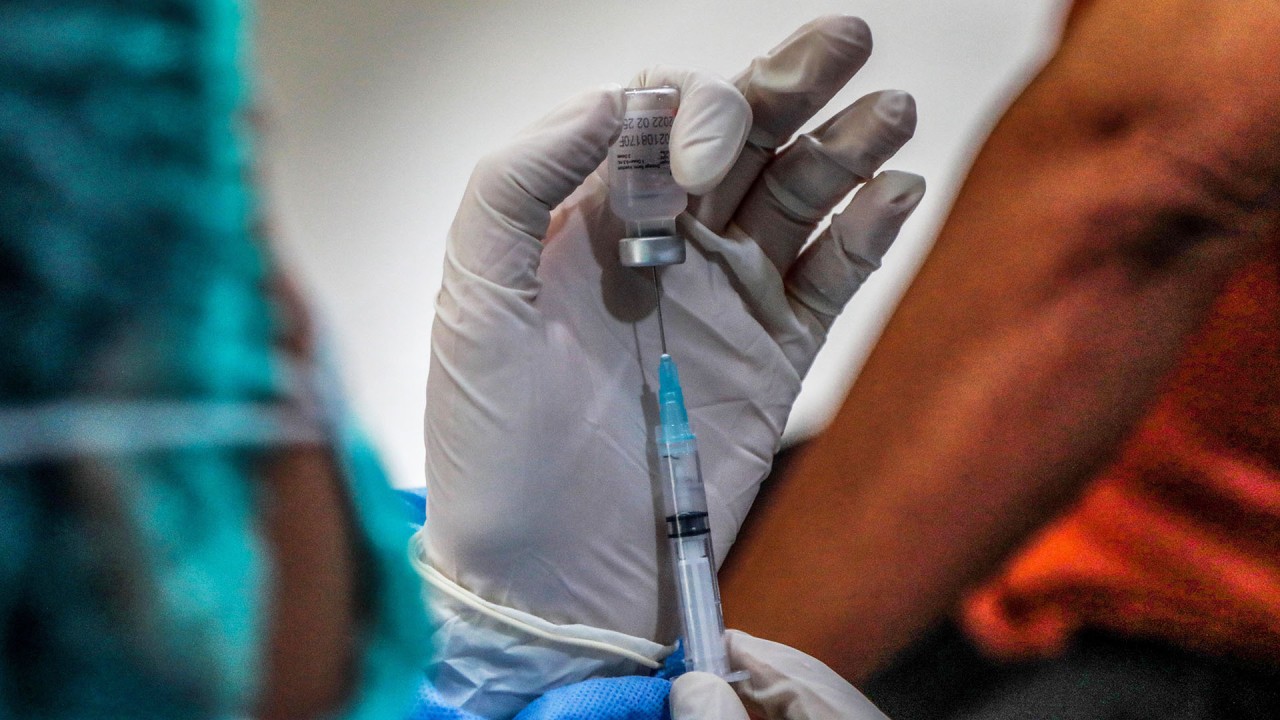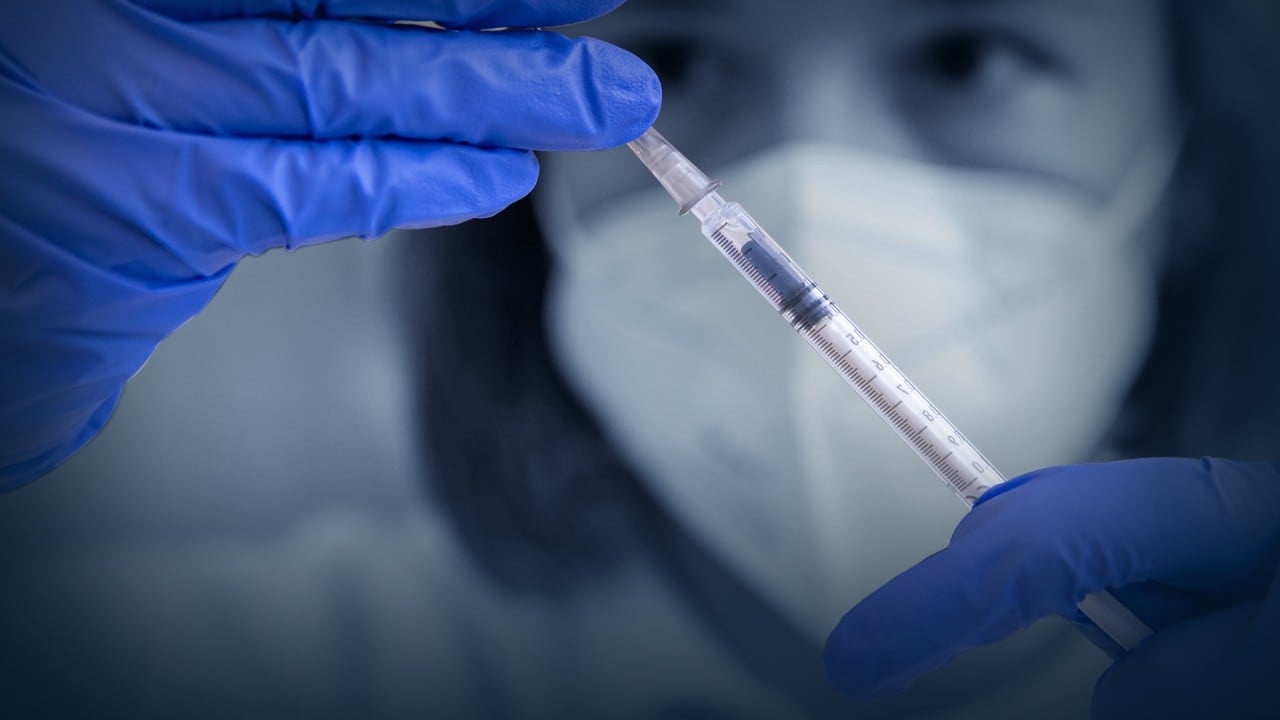
Coronavirus: WHO appeals to Chinese pharmaceutical firms to share vaccine patents
- WHO is looking to China and India to share patents to help boost Covid-19 jabs in developing countries
- As the world grapples with the emerging Omicron strain, China’s president pledges to supply a further 1 billion vaccine doses to Africa next year
But so far it has had the cold shoulder from pharmaceutical giants – including Pfizer, Moderna, Johnson & Johnson and AstraZeneca – even though it has set up a mRNA technology transfer hub in Africa, expecting that would ease the sharing of advanced vaccine technology.
While still optimistic that Western pharmaceutical firms will share their technology, the WHO is also looking to China and India to try to tap into their vaccine technologies.
“In the case of China, we are in touch with the two big companies that have the vaccines approved by the World Health Organization,” Erika Dueñas Loayza, head of the intellectual property unit in the WHO division for access to medicines and health products, said.
Loayza said the WHO had contacted the Chinese mission in Geneva, as well as Sinopharm and Sinovac directly, to see if the two companies were willing to share their technologies and patents via the Covid-19 Technology Access Pool (C-TAP), a WHO platform for sharing data, technology and intellectual property for Covid-19 treatments, tests and vaccines.
Scientists call on world to help Africa with Covid-19 vaccines
She said the mechanism allowed flexibility for pharmaceutical firms to decide which countries they would share their technologies with, as well as determining royalty arrangements.
“We are asking them to share the technologies through C-TAP. And of course, the sharing is not for free. It’s a sharing in exchange [for] royalties, we are just going to play a role in mapping the potential manufacturers and help them in monitoring all these technology agreements because C-TAP covers not just intellectual property, but it can be know-how,” she said.
“It can be IP right, it can be data to facilitate the approval of these medicines in more countries.
“From the public health perspective, it is good for access because we can quickly identify manufacturers that are capable of producing. And then we help them to start quickly and to get the products into the developing country markets as soon as possible. And we generate competition – because we have many – and that’s the best way to reduce the prices.”
Loayza said the WHO was aware of the potential of other Chinese vaccine developers, and it would contact them too.
“We are very interested in organising a workshop in the Asian region or in China … We know that there are more [vaccines] in development, or small biotech companies that are already working in the development. And we are very happy to discuss it with them as well,” she said. “We also need the governments to facilitate this kind of discussion.”
She said Sinopharm and Sinovac had shown interest in sharing technologies in the early stages, but were more eager to strike bilateral agreements with individual countries after their jabs obtained WHO approval for emergency use.
“We are still in touch with them in discussions to see how we can move forward the licensing through C-TAP, because even if they already had a few licences, we know that we need more.”
Indian drug maker Bharat Biotech had offered its technology to C-TAP and the WHO was negotiating a licensing agreement with it, Loayza said.
“And we hope the Chinese will come on board as well soon,” she said.
Why it’s too early to panic about Omicron’s ability to evade vaccines
However, most Chinese jabs for export are sold via bilateral commercial deals. The prices of Chinese jabs are much higher than those of Oxford/AstraZeneca and Johnson & Johnson shots, although they are less expensive than the mRNA vaccines produced by Pfizer and Moderna.
China has signed bilateral deals to produce jabs locally in countries such as Egypt, the United Arab Emirates, Indonesia and Pakistan.
Loayza said patent sharing of vaccine technologies should be sped up, not only to prepare for the Omicron variant, but for other future variants.
So far, only 7.3 per cent of the population in Africa is fully vaccinated, compared to roughly 60 per cent in the United States and close to 80 per cent in China.
Loayza said voluntary licences were preferred for vaccine technology sharing because production included trade secrets – it would be difficult for companies to reverse engineer products with compulsory licensing. The WHO is discussing with its members a requirement for pharmaceutical companies to share their technology when the government provides funding for the R&D of a vaccine.
On the treatment side, Merck and Pfizer respectively have signed licences with the United Nations-backed Medicines Patent Pool (MPP) to allow pharmaceutical firms to produce their oral antiviral pills for sale in certain low-income countries. By increasing supply through these sublicences, low-income countries can have access to potentially game-changing drugs at much lower prices.
Under the MPP agreement, sublicences will be given to manufacturers to produce the Merck pills for 105 low-income countries and Pfizer pills for 95 low-income countries.
Loayza said that although such arrangements were welcome, the coverage of Merck’s MPP licences was too small and their impact remained limited.
“All the other countries – like the Asian countries that have capacity to manufacture or all the Latin American countries that may have some capacity to produce as well – are excluded from the licence,” she said.
“That is why the WHO has called on the company to include more countries in the scope of this licence, because otherwise the impact is very limited – though it is better than nothing.”




